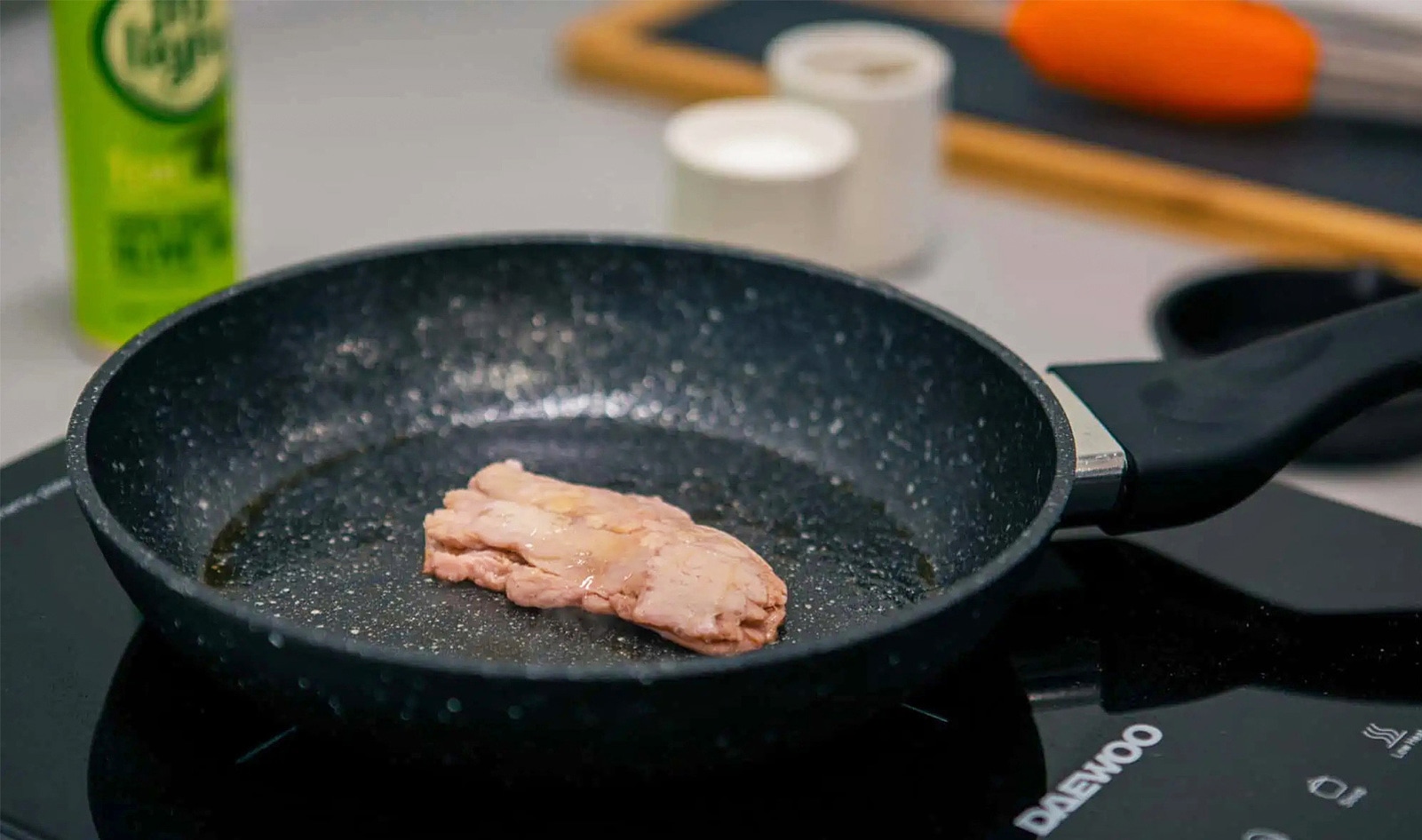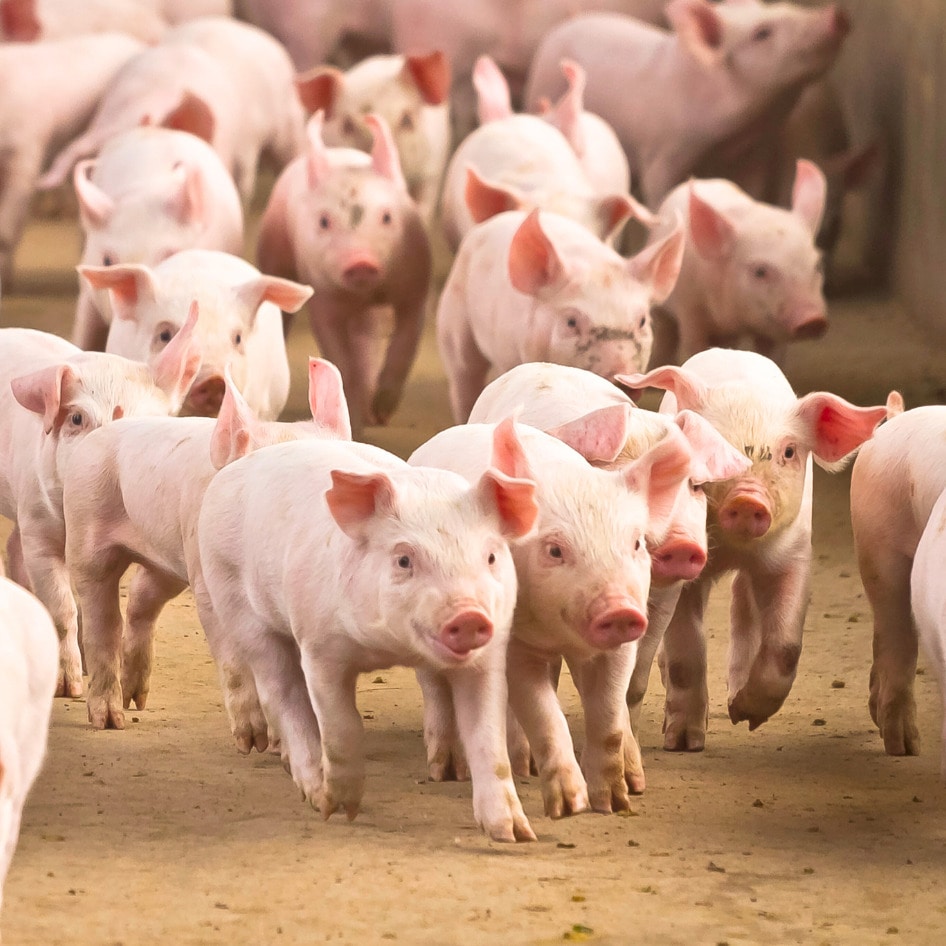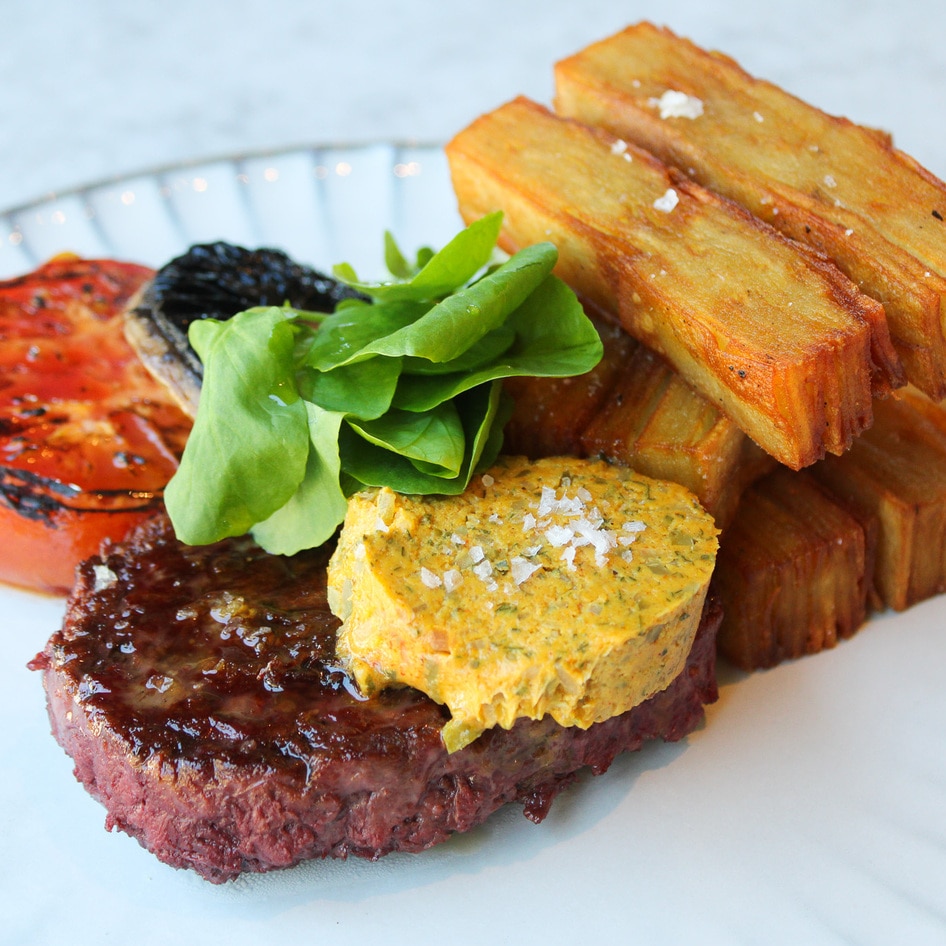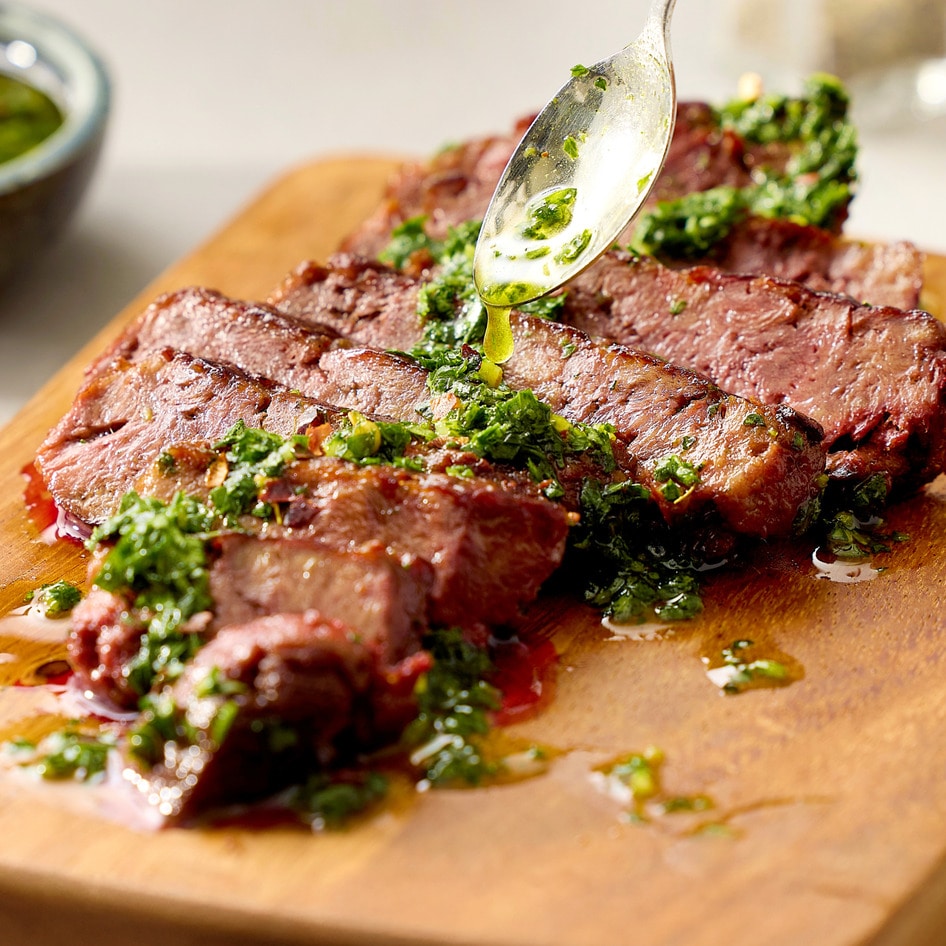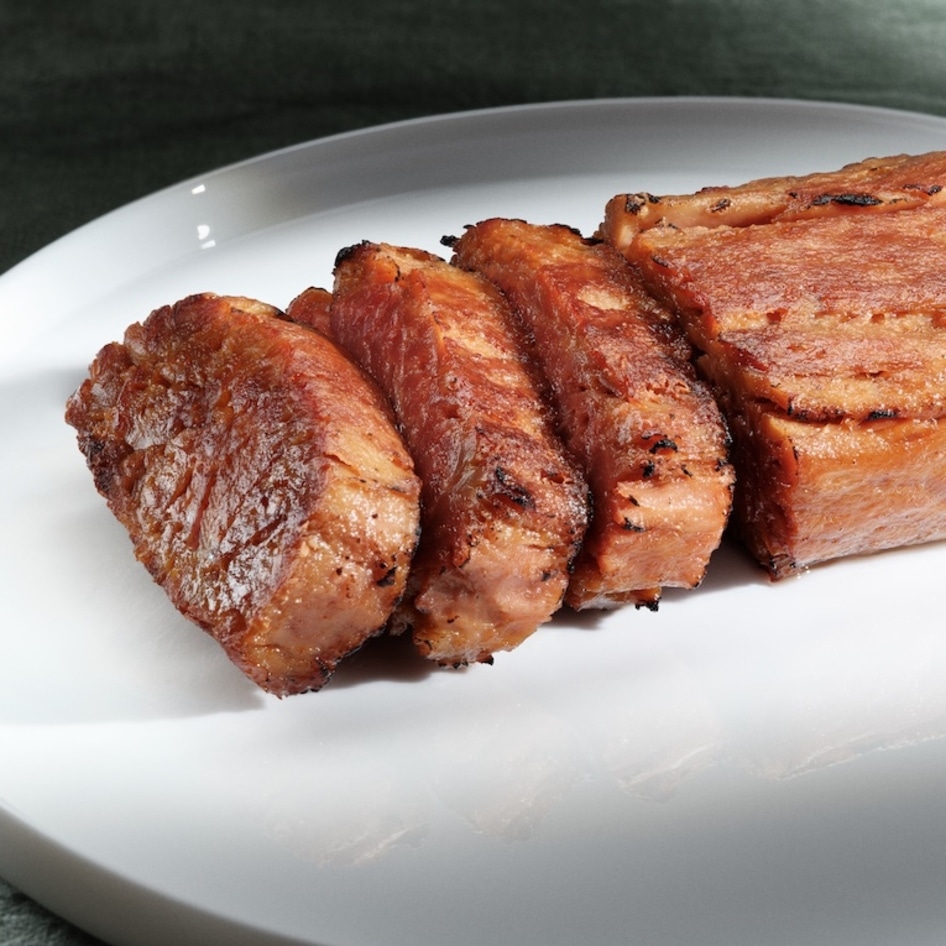Pork first became known as “the other white meat” in 1987 when an advertising agency helped the National Pork Board rebrand the pig meat by dispelling its negative reputation of being fatty. Fast-forward to 2023 and United Kingdom-based company 3D Bio-Tissues (3DBT) is improving upon pork once more: this time by taking animal slaughter out of the equation.
The company just made history by unveiling what is thought to be the world’s first whole-cut real pork filet made without slaughtering a single pig. Globally, a number of cultivated meat companies are making slaughter-free versions of many kinds of meats, including beef, chicken, and seafood. Most, including those working with porcine cells, have succeeded in making ground meat.
The difference with 3DBT is that it’s tackling whole-cuts. “This is a significant scientific breakthrough which has very positive implications not just for (parent company) BSF and 3DBT but also for the UK and the cultivated meat industry as a whole,” Che Connon, PhD, 3DBT’S CEO, said in a statement. “We are absolutely delighted with the appearance, taste, aroma, and texture of our cultivated pork, which is the first time we have fully sampled our product.”
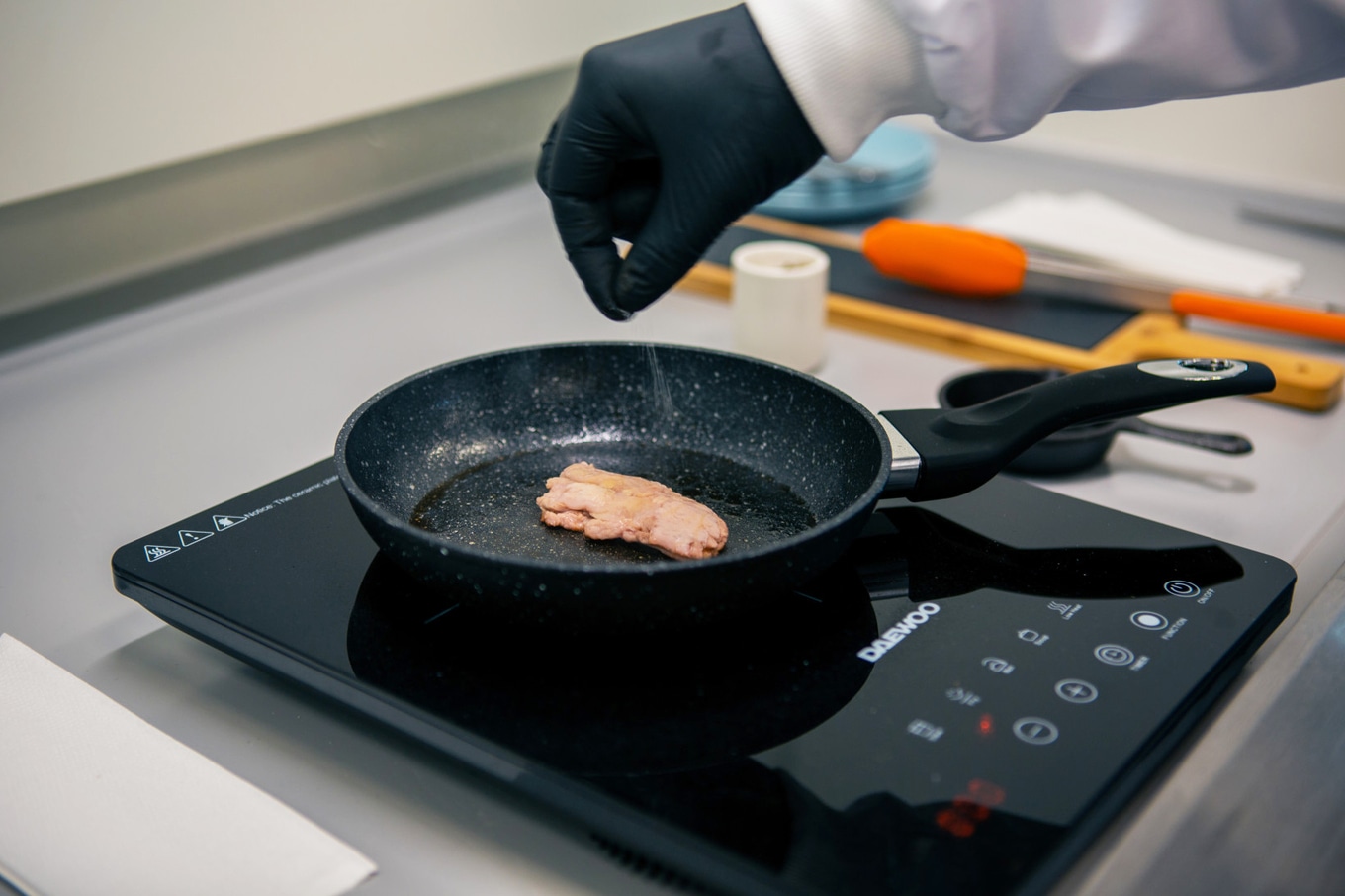 3DBT
3DBT
The pork filet 3DBT exhibited measured 9cm (3.5 inches) in width, 4cm (1.6 inches) in length and 1cm in thickness (0.4 inches), or approximately the same size as a small cut of pork. It was also made using a patented growth supplement that eliminated the need to use any fillers, making what 3DBT says is the first 100-percent cultivated meat pork filet ever made and tasted in the world.
“Our cruelty-free filet has exceeded our expectations in all respects, and we are extremely excited about the technological progress we are making and the impact this could have on our industry,” Cannon said.
Making pork from cells, not pigs
The traditional way of producing “the other white meat,” typically includes inherent animal cruelty such as confining mother pigs to gestation crates, cutting pig tails in a practice known as “docking,” and keeping animals in cramped quarters to maximize production.
Industrial pig farms are also environmental nightmares. For instance, Smithfield’s hog operations in North Carolina are the subject of The Smell of Money. Executively produced by actress Kate Mara, the documentary gives a platform to the residents of Duplin County, NC—mostly people of color—where pollution dispelled by the massive hog operation has led to severe health issues.
Operations like these have been classified as acts of environmental racism, and forward-thinking politicians, such as New Jersey senator and former presidential candidate Cory Booker, are working to shut them down.
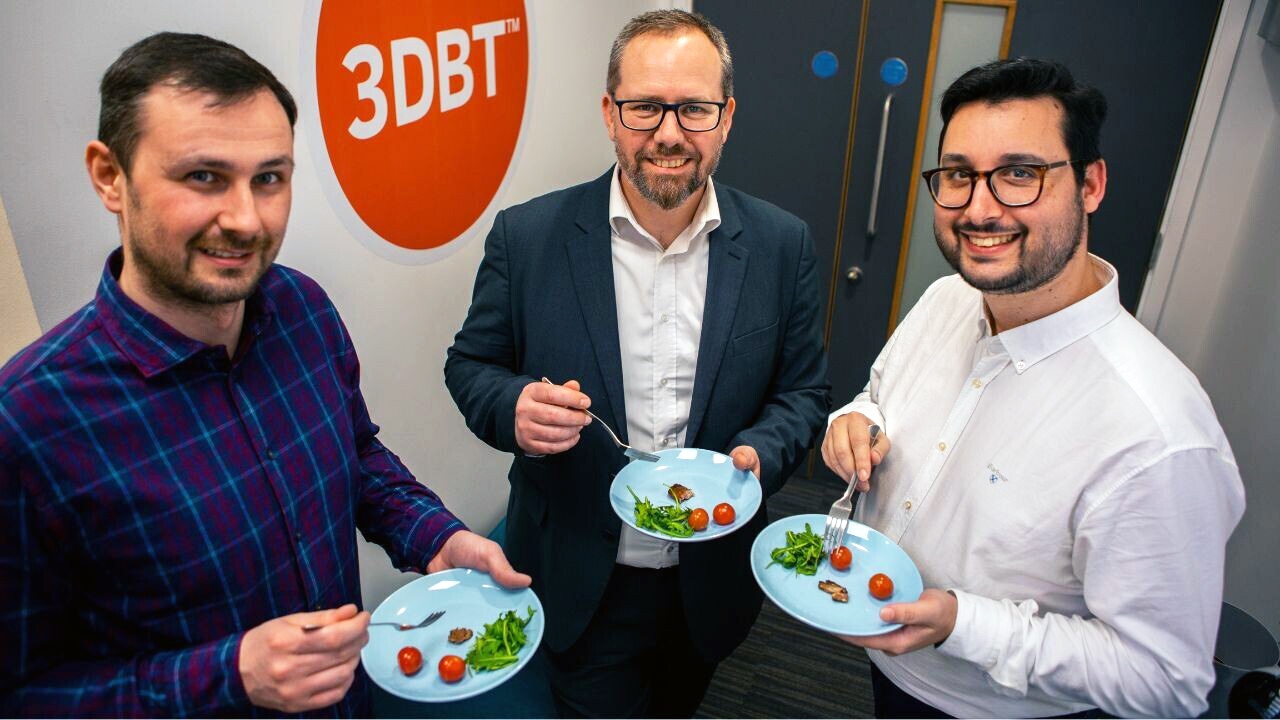 3DBT
3DBT
Is there a better way to make the same meat? 3DBT’s pork filets never saw the inside of a slaughterhouse nor did they pollute communities around them. Instead, these fibrous steaks took approximately one month to grow inside a bioreactor, which most closely resembles machinery used in beer brewing.
Bringing home the (cultivated) bacon
One limiting factor in terms of ethics and cost in the cultivated meat industry has historically been the use of fetal bovine serum as a cell growth media.
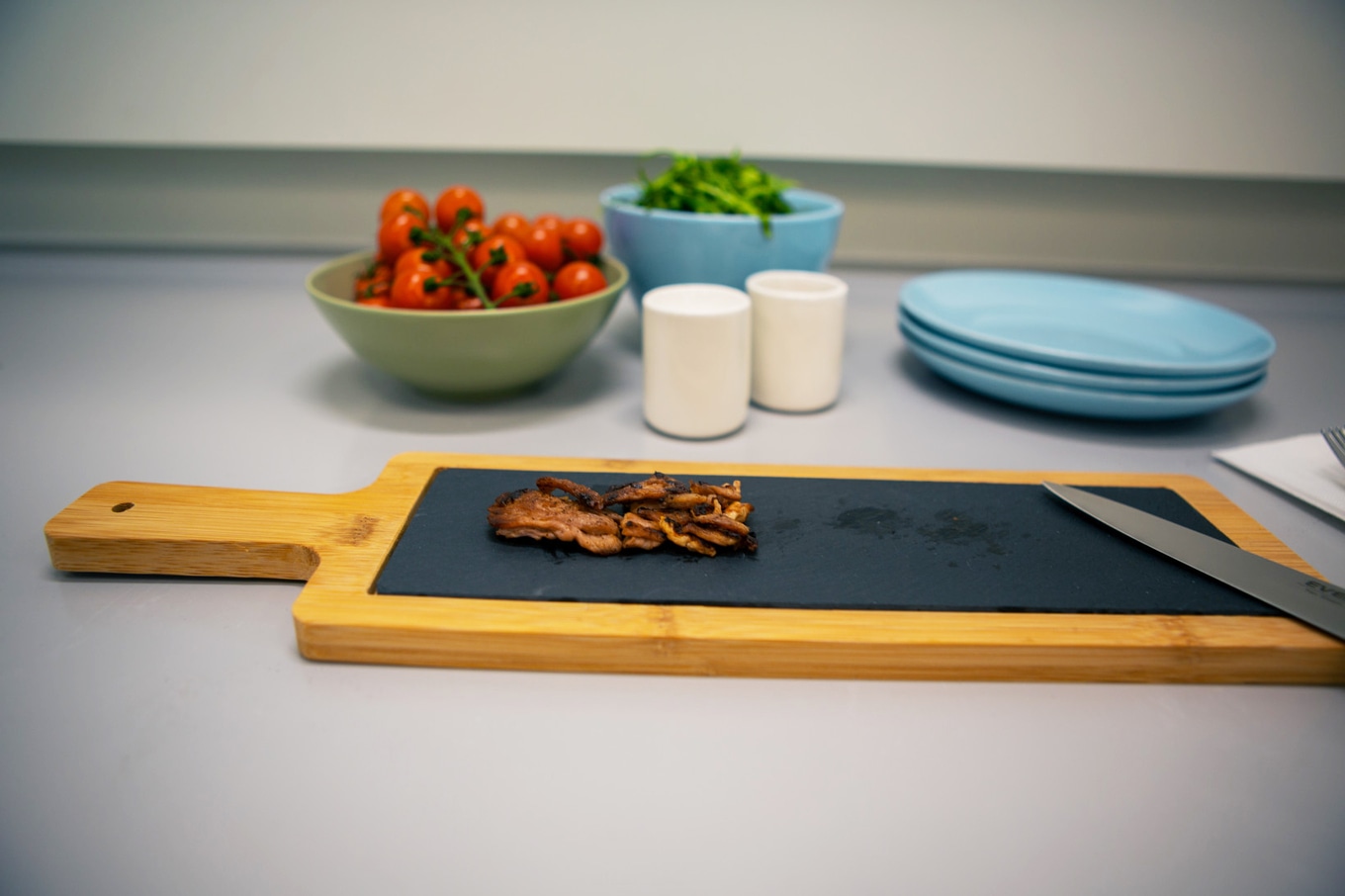 3DBT
3DBT
However, 3DBT has developed City-Mix, its patented, animal-free cell booster that also eliminates the need to use scaffolding to grow whole cuts of meat. The company’s City-Mix is available as a stand-alone product that can help other companies overcome obstacles in cultivated meat production.
“City-mix, our serum-free media supplement in which we cultivated the filet, is helping to greatly reduce the cost of cultivated meat such that it may become economically viable in the near future,” Cannon said.
“At the same time, our ‘structure without scaffold’ technology is helping to make cultivated meat that more closely resembles traditional meat in every respect without the need for plant-based additives,” he said.
The company tested raw and cooked versions of its filets, reporting that the meat was identical to its traditionally made counterpart in that it was visibly fibrous; seared, crisped, and browned when cooked; and had that tell-tale taste and smell of real pork.
“We look forward to taking the findings through to the next stage of development, focused on producing a chef-ready product for public consumption,” Cannon said. 3DBT will soon showcase its pork at a wider public event in London and is working to scale its manufacturing.
Currently, cultivated meat sale is only available for sale in Singapore—which granted regulatory approval to GOOD Meat’s cultivated chicken in late 2020.
 Upside Foods
Upside Foods
Last year, California-based Upside Foods passed a milestone in the United States where the US Food and Drug Administration (FDA) issued a “generally regarded as safe” (GRAS) letter in regard to its cultivated chicken. Now, Upside is working to pass approvals from the US Department of Agriculture (USDA).
For the latest vegan news, read:
JUMP TO ... Latest News | Recipes | Guides | Health | Subscribe

